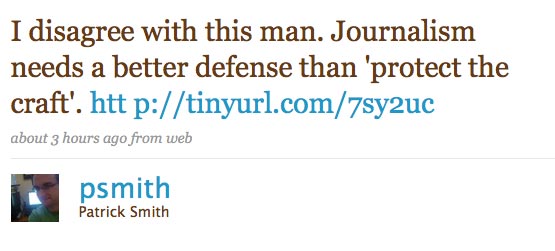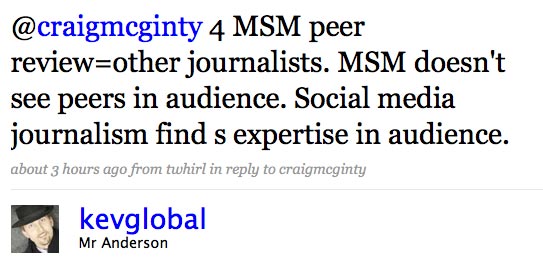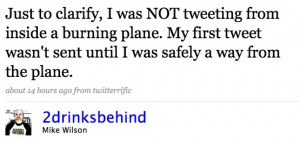In the name of research I have decided to send my CV to a cross-section of different industry people for their views and post their advice on this blog – see my earlier post on the problems of CV writing for journalists.
[View the current state of my CV, as reviewed by the editor below, at this link]
[View Amy’s CV – updated based on the feedback – at this link]
Crit #1
It’s always nice to start with a proper annihilation and the first response I had was just that.
This editor does not want to be named. He has no NCTJ or other journalism qualifications and started out by writing about what he knew. He then worked his way up the ladder in business journalism, which he says, some people sneer at, but pays (on average) better than consumer.
Now he travels all over the world with his job and is on a great £45,000 salary.
His comments are in italics:
- The CV’s too long. I mean – ‘Organising Managing Editor’s diary’…. Who cares? That’s not a journalism job. That’s drudgery. That’s secretarial. In fact, almost all the fashion stuff is just about organising things.
Ouch, but good point. My CV is too long. I was worried about taking out my previous jobs for fear of having gaps, but this editor said if it isn’t relevant ditch it and a lot of other people have said that as well.
- Your skills listing – you’d better be damn sure you are properly skilled in them, because all it takes is one person to ask (for example): “What’s the keystroke for ‘levels’ in Photoshop?” (one of the very basic things) and for you to go: “Er, um….”, and you’re out the door, because if you’ve bullshitted on that, you’ll have bullshitted elsewhere. We test people’s claims, and if we find they’ve tried to con us, we don’t employ them. That applies to everything from claimed languages to claimed skills.
Now this is some sound advice I think. This particular editor kindly forwarded me his CV and has put what level he is at various things in brackets i.e. Photoshop (basic) Dreamweaver (advanced) etc.
- I’d want to know: where’s the writing? The articles? The work in print? You say you work for Vague, you provide a link on the PDF to Vague, but no link to your work. That’s plain stupid. Oh, and while I’m on the links – the clickable links aren’t where they should be. And pick them out in a colour of something so they stand out better. As it is, I had to meander-mouse until I picked them up.
Links and articles: it is your job to make reading your CV as easy as possible. The old adage of ‘pretend you’re writing for an alien’ rings true here. I will add a ‘click here for article’ link to combat ‘mouse meandering’.
- Ditch that ‘adding to my collection of handbags’ crap in the interests bit. I’d stick life drawing at the head of the queue. Fiction writing? Put that only if you’ve sold any.
Ah hobbies, it’s a minefield isn’t it? You can’t put going to the pub and The Perfect CV advises you not to put any extreme sports in either – obviously if you like to bungee off tall buildings you can’t be trusted with a stapler…
Perhaps he has a point about the handbags but interestingly enough, some women actually remark on this with a smile while men always think I’m an idiot. The question is should you go as far as tailoring your CV for both sexes?
- Your work for English Vogue after being shortlisted in a talent contest: you did no journalism work at all. All you list, again, is secretarial and admin stuff and there are no links to the stuff you said you did for them in your career history. All that says to me is: “She was only shortlisted in the talent contest and evidently wasn’t good enough to do any writing. I’d like to see the winner….”
Harsh but true: internships, especially at fashion magazines, are mostly admin based, but, as Max Eggert suggests in the Perfect CV, it is a case of being more positive about what you did and writing it with your potential employers’ needs in mind.
- I’m amazed Times 2 gave that article about working for American Vogue two pages. It read like pure fan-girl stuff, interspersed with boring extraneous detail. Sorry, but stuff like: ‘I left for the day at a very respectable six in the evening’ should have been subbed into oblivion.
Now this is where I would strongly disagree! Obviously the subject material didn’t do it for this editor but if you have been published anywhere it will shine out from the page.
- In short, I’d probably have a look at you, but I’d be more likely to if you cut the crap about the non-journalism work you did for Vogues Various, which, coupled with the breathy piece in Times 2, that just marks you out as a starry-eyed bod who wants to mingle but not necessarily write.
(I might add mingling to my interests)
- Okay, the good news: you can write. It’s a bit too wordy here and there, but you can write. Now write about what you know and love. Get the passion and the interest into it.
At last some good news! Writing about what you know and love is great advice, but I would say to be a journalist you need the ability to be interested in everything. Even local government finance.



